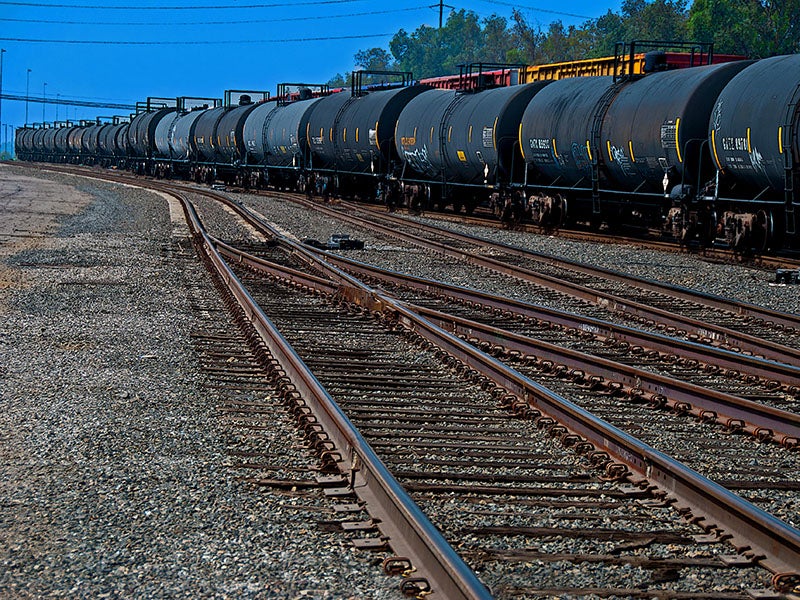Federal Government Would Allow Exploding Rail Cars To Keep Rolling for 3 to 6 Years
The Department of Transportation has proposed long-overdue rules to improve the safety of tank cars used to ship highly volatile Bakken crude oil and other hazardous fuels across America.

This page was published 11 years ago. Find the latest on Earthjustice’s work.
This week, the Department of Transportation (DOT) proposed long-overdue rules to improve the safety of tank cars used to ship highly volatile Bakken crude oil and other hazardous fuels across America. The good news is the proposal would create a new tank car to replace the outdated DOT-111s, nicknamed the “Ford Pinto of rail cars” because they are prone to puncture, spill oil and produce fires and even deadly explosions in derailments. The bad news is that the Department has set a timeline of three to six years to phase-out the current fleet, allowing these puncture-prone tankers to keep rolling through communities across the country.
This timeline is disgraceful especially given the Department’s own analysis estimates that without a phase-out there are likely to be 15 derailments on mainlines every year. The Department also predicts an additional 10 serious accidents involving these cars over the next two decades, with a single crash estimated to cause as much as $5 billion in damages.
Some press reports suggest there would be a two-year phase-out based on statements made when the Department rolled out the proposal, and the New York Times called the phase-out timetable “faster than a similar effort in Canada to phase out older tank cars.” But the numbers show otherwise.
Canada began its phase out this past spring, which will ban the shipment of crude oil, ethanol and other dangerous goods in DOT-111 tank cars by May 2017 with an immediate ban on the use of the oldest DOT-111s as of May 2014. Under the U.S. proposal, a partial ban on shipping the most volatile crude in DOT-111s would kick in as of October 1, 2017, with additional partial bans following in October 2018 and October 2020. Once it is fully in place, the U.S. ban would apply only to trains with 20 or more cars loaded with crude oil, ethanol and most other flammable liquids, meaning these antiquated DOT-111s could continue to be used to ship explosive materials in groups of 19 cars or less.
More oil spilled in rail accidents in 2013 than the previous 37 years combined, and serious train accidents continued in 2014. The DOT-111s were the cars involved in the crash and subsequent fireball last December in Casselton, N.D. They were also the ones that derailed in a swamp outside Aliceville, Ala., choking the wetlands with untold gallons of spilled crude oil. They were the tank cars that were part of the runaway train that throttled down a hill and ruptured last summer in Quebec incinerating 47 people.
Established in 1987, Earthjustice's Northwest Regional Office has been at the forefront of many of the most significant legal decisions safeguarding the Pacific Northwest’s imperiled species, ancient forests, and waterways.